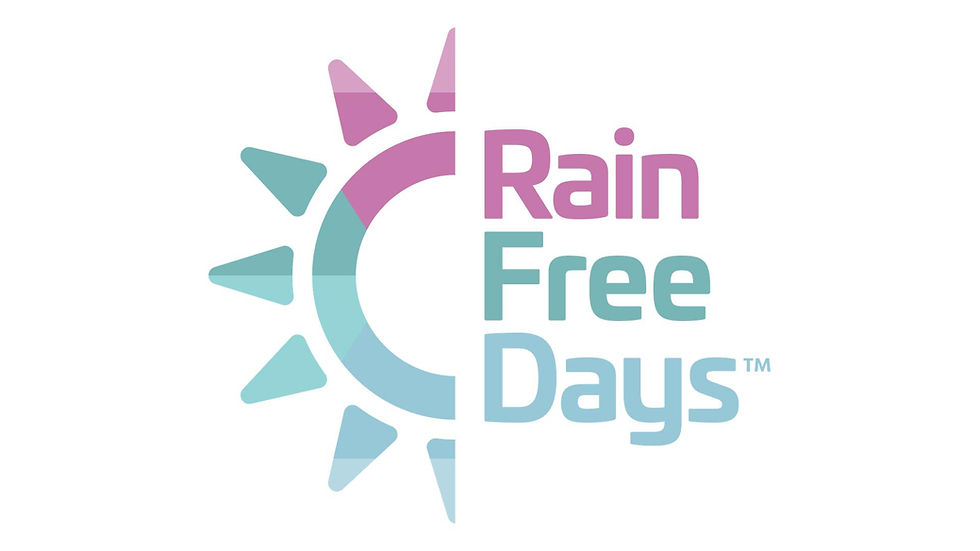The imperfect art of sustainable communications
- matthewhunt123
- Feb 14, 2022
- 5 min read
Updated: Sep 17, 2024

Scanning the papers this last week, we’ve seen a welcome departure from wall-to-wall gloom –and very real signs of ‘Reasons To Be Cheerful’.The economy, we’re told, might not be such a basket case after all: in fact, we should be looking at a recovery later this year. Whilst we might have been dubbed ‘Plague Island’ by some, we’re now –thanks to the vaccines – more of a speedboat than a tanker. And with the UK stepping up as G7 president this year, hosting COP26 in November, and being the fastest country in the G20 to decarbonise its economy since 2000, all eyes are on us - for the right reasons.
The unifying theme is that of a green recovery after coronavirus. At a macro level, we’re now hearing this promised by politicians both sides of the Atlantic, and the private sector is embracing the environment like never before. Almost every corner of industry now has a sustainable arm: not just energy, but transport, food, clothing – even the major tobacco firms have sustainability commitments. It’s gone from optional ‘greenwashing’ to part of core business strategy – although, as Greenpeace and others are right to remind us, the next challenge will be moving from strategy to delivery.
Sustainability comes of age
Admittedly, this is not entirely new: back in 1972, governments met at the UN Conference on the Human Environment in Sweden to consider what the rights of a family should be to a healthy and productive environment. 43 years later, the UN agreed on its Sustainable Development Goals: 17 interlinked goals covering everything from health and equality to urban infrastructure and climate action. They’ve now given specific targets to governments, with most due to be met this decade - and so the gauntlet is, in turn, laid down to private companies and individuals to play their part.
At 11 London, we work in the areas of ‘health and humanity’. These have, to date, encompassed commercial health companies and charities from different sectors, but now include organisations whose core products and services are sustainable. It’s not just about our own health, after all; it’s about ensuring there’s a healthier world around us too – given (as we all now know) that the health of people, animals and our planet are inextricably linked. There’s a link between how we treat bats and pangolins, and how we as humans can suffer. But if the pandemic reduces air travel and road traffic, then air quality goes up; and if we use this period to upgrade to a greener infrastructure, it doesn’t feel so much like time wasted.
But, of course, because the problems are interconnected, the solutions inevitably are too. Mask up, but be aware that there’s a growing environmental issue because of disposable masks. Buy an electric car and your street’s air might start to be cleaner, but spare a thought for people living near the coal-fired power stations that generate the electricity to build and subsequently power it. There’s a sustainability debate raging about the mining and use of precious metals in batteries, too. It’s great that we’re finding vaccines to Covid-19, but less great if you’re one of the hundreds of thousands of horseshoe crabs that have their blood ‘milked’ for medical testing. Or if you’re a shark that’s been hunted for its liver oil or ‘squalene’, also used in vaccine production.
This isn’t meant to pour cold water on good initiatives (even if it is from the tap, not a plastic bottle). But it does show that, even with a much-vaunted green recovery, there are complex chains of events at play and conscious trade-offs to be made along the way. For businesses, the perfect supply chain is hard to achieve - and for individuals, there are only so many virtuous things we can champion without exhaustion or, frankly, ridicule.
'World beating'
And when it comes to communications, we’d be well advised to ensure that our messages are truly sustainable. Make a positive claim about one aspect of the supply chain, and it can be countered with a negative one from further up said chain. World beating claims, after all, can take quite a beating themselves. As we know from the anti-vax proponents, pseudo-science can be promulgated by passionate influencers, so even our best rational endeavours in public health communications can be hampered by quackery. And even seemingly obvious messages can be scientifically defendable at one point in time (‘masks don’t stop the virus’), and then called into question a few weeks down the line (‘masks do stop the virus’).
Sustainability in communications, therefore – especially for organisations focused on embracing that very value – has to be rooted in connected thinking from the very beginning: an acceptance of fallibility (not everything you try will be right), and the agility to adapt in the face of new evidence. Make sure that your claims and messages are defendable in the round, and not just emblematic of a single good thing that you do in an otherwise questionable mix – or you’ll constantly be watching your back. Make sure that the tone of your messages strikes the right balance of vision and humility, or you’ll either fail to motivate or fail to be plausible – or both.
These values need to run not only through what you’re saying from a messaging point of view, but also where and when you’re saying it from a channel point of view. Our real-time social media landscape, where messages can be criticised and facts disproved within minutes, demands equally fast-paced management: gone are the days of hard-copy messaging bibles and six-months-in-advance media bookings. These days, brands are measured as much by how they respond as how they lead – so media lead times need to be shorter, and brand message documents should be live and shared.
Our agency turns 6 years old this month, and over that time we’ve developed an approach called Social Ecosystem which helps clients test, learn, measure and scale up their ideas - rapidly and at low cost. It brings together awareness and lead generation on paid social platforms, plus brand and organic profile management on a brand’s social pages, and is informed on an ongoing basis by social listening. This connected approach, with the ability to pivot the messaging, based on a constant feedback loop of insights, is one way of making communications sustainable, and it’s certainly worked for organisations in the fields of health and humanity.
For example, we have worked with Earthwatch over the last year to generate over 40,000 leads and recruit 15,000 citizen scientists to take part in research projects to help the environment. Through ongoing social listening activity, we are able to help the charity understand more about their current, and potential new audiences and learn more about their competitors, with these insights informing their content strategy. Not everything we do will be an unqualified success, but because the risk is spread, it makes the overall approach successful.
Make it desirable
The other part of the puzzle – working out ‘what’ you should be saying – is also an area where we’ve put together a bespoke approach. It’s not enough for brands to have a vision of sustainability; they need to show their audiences how this vision links with individuals’ personal motivations and emotional triggers. This is where Tesla has done so well in pairing its rational long-term vision with the understanding that car drivers still quite like speed and luxury. They’re also one of the few to recognise the challenge of accessibility, with their wide model range and network of superfast roadside chargers: sustainability often feels as though it comes with a cost premium, or that it’s ‘not available near me’ – so we help our clients communicate these aspects, too, as they’re key drivers of behaviour change.
There’s a lot to be mindful of, whether you’re communicating in the sustainability sectors, or creating sustainable communications. So it’s worth remembering that you don’t have to be perfect – but you do need to approach things consciously, connectedly and responsively. Because if you’re serious about sustainability, you’re playing the long game.
Matthew Hunt
Managing Director and Co-Founder of 11-London




